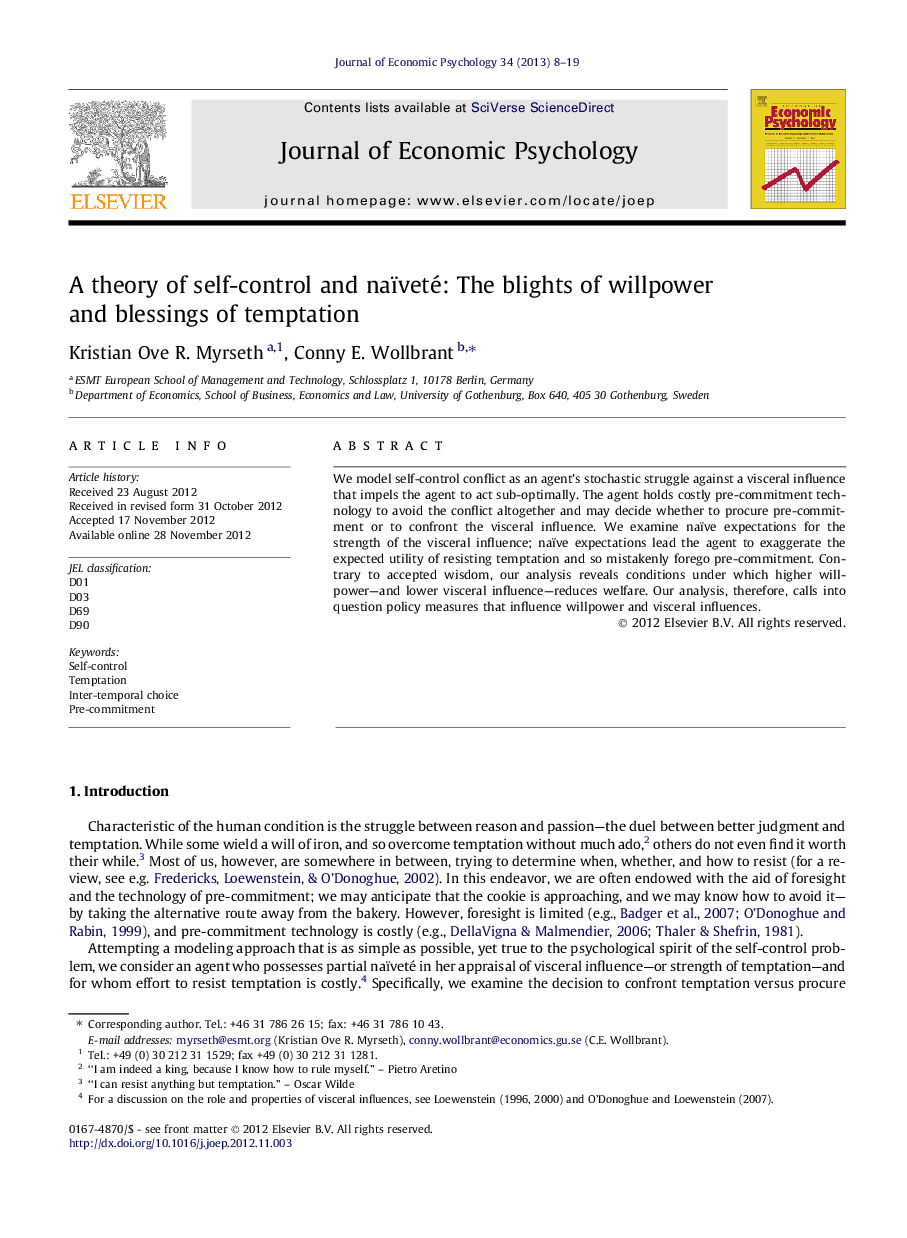| Article ID | Journal | Published Year | Pages | File Type |
|---|---|---|---|---|
| 885064 | Journal of Economic Psychology | 2013 | 12 Pages |
We model self-control conflict as an agent’s stochastic struggle against a visceral influence that impels the agent to act sub-optimally. The agent holds costly pre-commitment technology to avoid the conflict altogether and may decide whether to procure pre-commitment or to confront the visceral influence. We examine naïve expectations for the strength of the visceral influence; naïve expectations lead the agent to exaggerate the expected utility of resisting temptation and so mistakenly forego pre-commitment. Contrary to accepted wisdom, our analysis reveals conditions under which higher willpower—and lower visceral influence—reduces welfare. Our analysis, therefore, calls into question policy measures that influence willpower and visceral influences.
► Higher willpower can lead to welfare loss when agents underestimate temptation. ► Lower temptation can lead to welfare loss when agents underestimate temptation. ► Well intended policies have adverse effects and raise distributional concerns. ► We suggest which variables to focus on in order to avoid distributional concerns.
